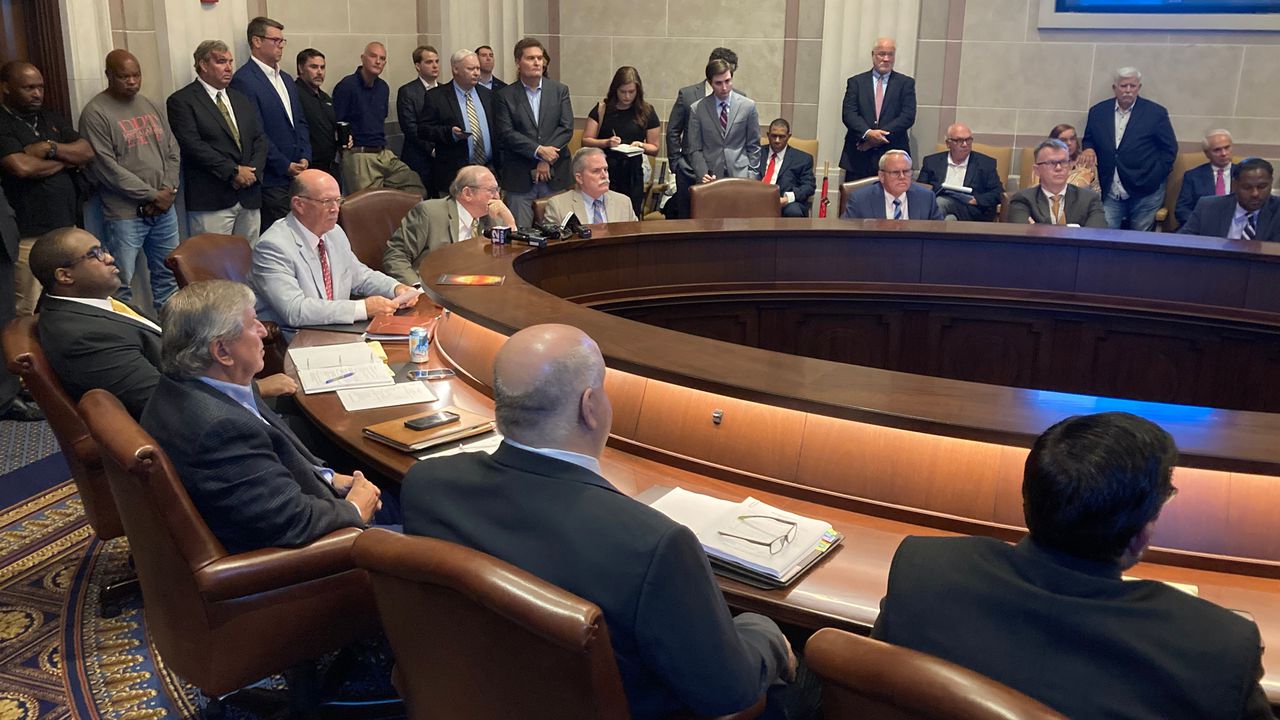Companies picked to start Alabamaâs medical marijuana industry
The Alabama Medical Cannabis Commission has awarded licenses for a second time to businesses that intend to be part of Alabama’s new medical marijuana industry.
The AMCC, meeting in Montgomery, voided the license awards it announced two months ago and voted again on the companies that will cultivate, process, transport, test, and dispense medical marijuana products.
The AMCC awarded licenses to 24 companies, including 19 that were among the 21 awarded last time. It awarded licenses to seven cultivators, three more than it did last time.
Commission Chair Rex Vaughn said he is hopeful that products could be available before the end of the year, although he said there are factors that could change that, including litigation over the licensing process, which is already ongoing.
Here are those awarded on Thursday, and those left out who were awarded last time:
Integrated facility (can cultivate, process, transport, and dispense medical cannabis and can have up to five dispensaries): Flowerwood Medical Cannabis; Southeast Cannabis Company; Sustainable Alabama; TheraTrue Alabama; and Insa Alabama.
Verano Alabama, which was awarded a license back on June 12, was not awarded one Thursday. The licenses awarded on June 12 were never issued by the AMCC.
Cultivator: Four companies that were awarded licenses on June 12 were awarded again — Blackberry Farms; Gulf Shore Remedies; Pure by Sirmon Farms; and Twisted Herb Cultivation.
The AMCC awarded three additional cultivator licenses to I Am Farms; Greenway Botanicals; and CRC of Alabama.
Processor: The same four companies that were awarded on June 12 — 1819 Labs; Enchanted Green; Jasper Development Group, Inc.; and Organic Harvest Lab.
Dispensers: The same four companies that were awarded on June 12 — CCS of Alabama; RJK Holdings AL: Statewide Property Holdings AL: and Yellowhammer Medical Dispensaries.
Transporter: Two of the three companies awarded on June 12 were awarded again — International Communication; and Tyler Van Lines. A third license went to XLCR Inc.
Alabama Secure Transport, which was awarded a license on June 12, was not awarded one on Thursday.
Testing lab: Certus Laboratories was awarded a license, as it had been on June 12. It was again the only testing lab awarded a license.
The commissioners met Thursday morning at 10 a.m. and voted to go into a closed session that would last about four hours. During the closed session, the commissioners filled out forms with their nominations for licenses in each category.
The AMCC returned to reopen the meeting shortly before 2:30 p.m. The AMCC staff collected envelopes with the nominees from each commissioner. The AMCC took a recess while the staff compiled the names of the nominees for deliberation.
After the recess, the commission accepted nominations and voted on them one-by-one.
On June 12, the AMCC awarded licenses to 21 companies out of 90 that applied.
Four days later, the AMCC put a hold on those awards after announcing it had found potential inconsistencies in the tabulation of scores used to help rank the applicants. The licenses were not issued.
During the meeting recess afternoon, two officials from the University of South Alabama gave a presentation on how the university recruited evaluators to assign scores to the applications. They also explained the mistakes that were found and how they said they were corrected and verified by a third party.
Vaughn said the scores were a factor in Thursday’s decisions but not necessarily the determining factor.
“The scores were certainly a guideline, but not the end-all, be-all,” Vaughn said.
The Legislature approved medical marijuana two years ago and created the AMCC to oversee seed-to-sale regulation of the industry, which will be fully intrastate.
Products can include gummies, tablets, capsules, tinctures, patches, oils, and other forms allowed by the legislation.
Patients who receive a medical cannabis card from a doctor will be able to buy the products at licensed dispensaries.
The products can be used to treat a wide range of conditions, including chronic pain, weight loss and nausea from cancer, depression, panic disorder, epilepsy, muscle spasms caused by disease or spinal cord injuries, PTSD, and others.
Alabama is one of 38 states that have approved medical marijuana, according to the National Conference of State Legislatures.
This story will be updated.
